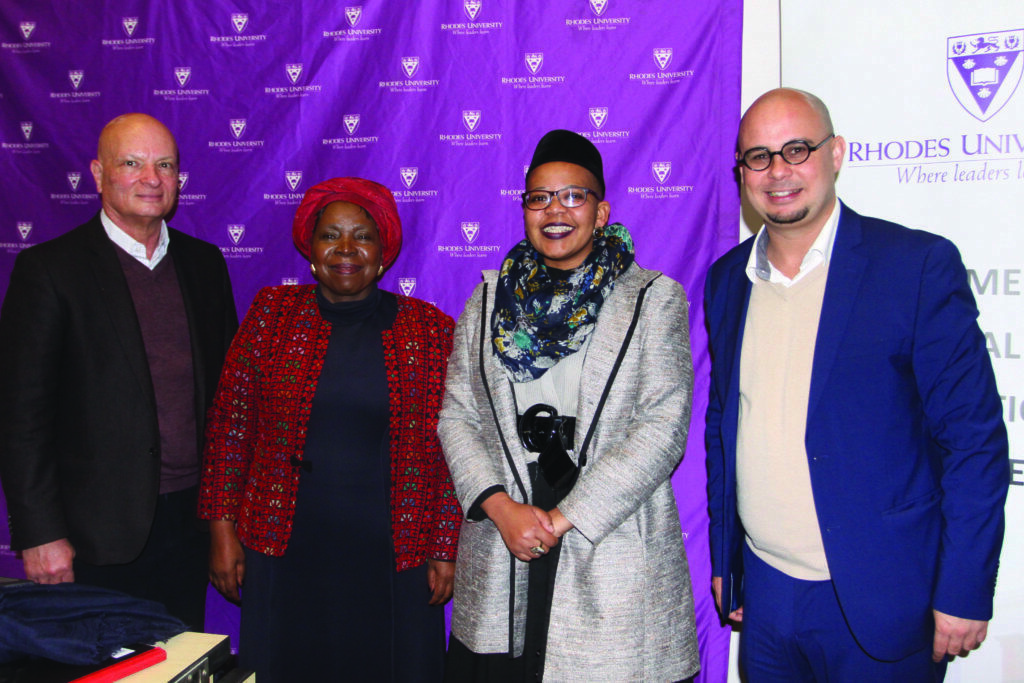Dr Nkosazana Dlamini-Zuma spent her Nelson Mandela Day speaking to students and the public at Barrat Lecture theatre, on invitation by Rhodes University’ Department of Political and International Studies. This was prior to her visit to the Themba TB Clinic in the Fingo .
Many of Grahamstown’s Municipal officials were in attendance as well, to learn about the African Union’s visionary Agenda 2063. The Agenda aims to put the African continent on a more competitive level internationally, by means of reaching goals within 10 years of the 50 year framework. A prosperous, peaceful and integrated continent is nothing close to an overnight success; and Dlamini-Zuma clearly stated this.
“Africa most precious resource is it’s people.” she said. She expressed her afro-patriotism, and directed us towards the vision of the Agenda 2063. It is not an ideal to be achieved solely by good governance and official management, but also through unity of action especially by the continent’s youth. Africa has so much to give, and Dlamini-Zuma shared a shocking statistic that would open the eyes of everyone in attendance: 60% of the world’s unoccupied land is here in Africa. We need to take advantage of this. She encouraged the youth to actively tackle socio-economic issues, and attain economic power.
Another statement she made, was that we Africans need to draw closer to African culture. Our writers, our music, art and film are where we ought to take fuel, because “with no culture you have no soul, and with no soul you will not achieve success” she said. She also shed light on a number of targets that the agenda has, in order to implement a “Skills Revolution”. In a Post-American world, we need not look at other continents before knowing where we stand and what we have.
Most of our continent’s resources are in the hands of foreign powers, as we do not posses the capacity to reap and manufacture finished goods on the continental. More focus needs to go into our energy infrastructure, to balance our supply of fossil fuels and alternative energy. “Imagine if our transport system made it possible to take a train from right here all the way to Egypt?” Dlamini-Zuma asked. The AU envision Africa upgrading transport infrastrucure that can meet these needs, in order to minimise our import rate and create a culture of trade.
Her last talking point was that today’s youth need to gravitate towards the agriculture industry. We all know that being a farmer is not the ‘coolest job’ you can think of, but in reality there is a dire need for young professionals to aid Africa’s problem with food security that is perpetuated by this industry gap. “Africa can relate to every continent of the world, but now is the time for the world to relate to us on our terms”, said Nkosazana Dlamini-Zuma in her parting words.


